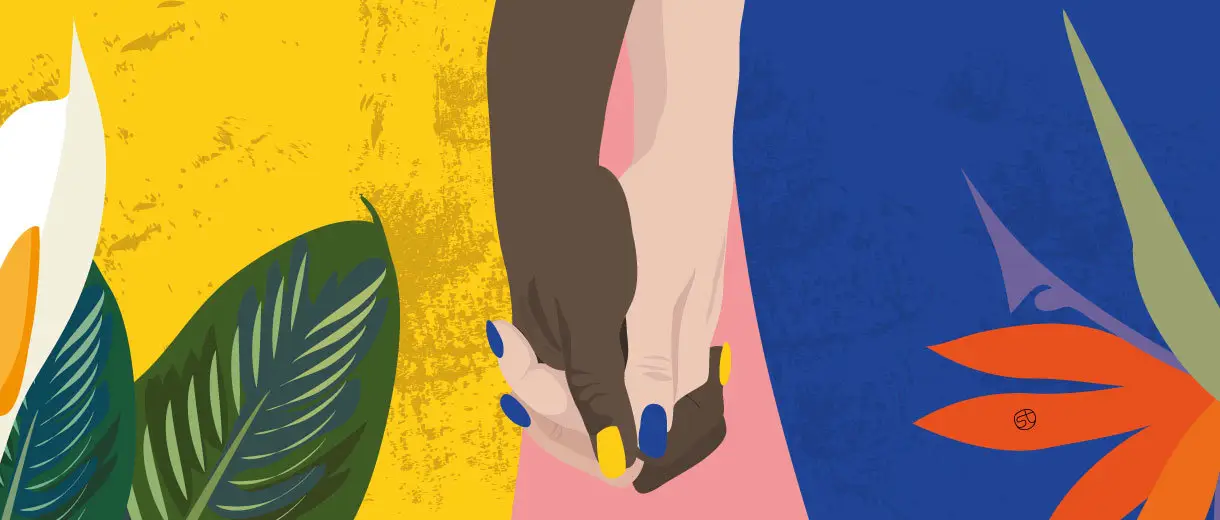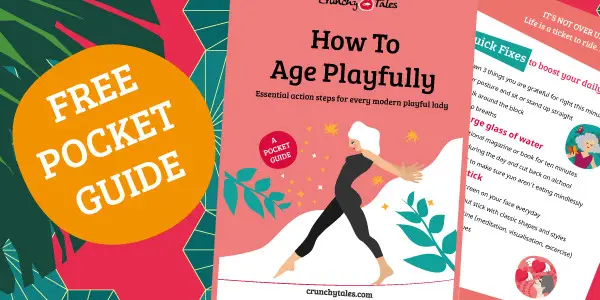Coming out in your 50s
Midlife is not a crisis but “an unravelling time”. According to the author and Research Professor at the University of Houston Brené Brown, it’s “when you feel a desperate pull to live the life you want to, not the life you were supposed to live”. For some people that unravelling comes in the form of confronting their sexuality that which may be different from the one, they had been living all along.
In a society with a greater acceptance of sexual differences and the legalisation of same-sex marriages, coming out later-in-life stories are becoming more prevalent as older people are feeling more comfortable about it.
The Office of National Statistics in the UK started compiling figures on same-sex marriages since it was legalized in the UK in 2014. Their report suggests that coming out in later life is becoming a growing trend. “There were 7,019 marriages between same-sex couples in 2016, an increase of 8.1% from 2015; of these marriages, 55.7% were between female couples”.
The same can be seen in the US. Census-data analysis from UCLA’s Williams Institute found that 36% of women in their 40s with same-sex partners previously had been married to men. That percentage grew to more than half for lesbians in their 50s, and 75% for those 60 and older.
Unravelling your sexuality
Sexuality is an interesting thing. Sexual orientation, the different expressions of it, what determines it, how it is defined and how it may change over one’s lifetime, is a puzzle. When a woman comes out, she experiences desire as she did in puberty. It’s as if she is making up for the lost time. While exhilarating, it is also confusing and scary at the same time.
Sometimes women who came out as lesbian later in life look back and realise they have been always attracted to women. They remember attractions to friends when they were younger. They always preferred the company of women. They never really enjoyed sex with men or had unfulfilling relationships. For others, finding themselves falling in love with another woman is kind of shocking. Perhaps they had good relationships with men all along, enjoyed sex with men and raised a family. Then out of the blue, they find themselves being attracted sexually to women. Or they find themselves in love with a friend.
Through her research on sexual orientation development and sexual identity, Professor of Developmental Psychology and Health Psychology at the University of Utah, Lisa Diamond, best known for her book, ‘Sexual Fluidity: Understanding Women’s Love and Desire’ reported that many women experience variability in their sexual orientation identity.
She has followed women’s sexual preferences over a number of decades and she has found that sexual preferences, attitudes, behaviours and identity are malleable to some degree, depending on their immediate situation or environment. Her study found that “women’s sexual feelings are more complicated than straight or gay and may change over a lifetime.”
Professor Diamond also believes:
People become more expansive in a number of ways as they get older. I think a lot of women, late in life – she said- when they’re no longer worried about raising the kids, and when they’re looking back on their marriage and how satisfying it is, they find an opportunity to take a second look at what they want and feel like.
Sharing your feelings
Ultimately, it’s not about disliking men. Most of the women agonised over coming out to their husbands. There is a period of grieving; grieving for the years of not living their truth, for the marriage from which they are now walking away and even for friends who may be uncomfortable with the new identity.
After four children and married to a man for thirty years, relationship therapist Jane T. came out in her late 50s: “While on the lesbians-only Olivia Cruise – she said-. I got the impression that grey and gay was at least as common as women coming out in their teens”.
Lynn F. shared about the time her eight-year-old son saw her kissing her friend in the kitchen while he was sneaking a snack out of the refrigerator. The next day, pointing to a sexy cover of the August 1993 edition of Vanity Fair with Cindy Crawford straddled and shaving the openly gay K D Lang on a barber’s chair, he asked her if she and her friend were “like that.” Not able to hide it any longer, she came out to her husband.
An evangelical Christian most of her life, Debra G., married twice, believing that she could ‘pray’ the gay away. The church was more accepting of her multiple marriages to men than they would ever be of a long term committed relationship with another woman. Then there are children involved. Fortunately, the younger generation is much more accepting. When Karen came out to her children, her younger daughter responded, “Mom, I am mad that you did not tell me sooner.”
What support can I get?
Coming out to parents, family and friends can be a difficult process; you are sharing something very personal with people you love. The dynamics of family relationships vary enormously from family to family, and your approach will depend entirely on this. With this in mind, we make some suggestions regarding coming out to a partner, parents, or children
If you feel lost, the best sources of information are often lesbian switchboards or associations. Phoning your local lesbian helpline may take a lot of courage, but remember that all the volunteers who work there are gay or bisexual and many of them will have gone through a similar process and will be able to understand how you feel.
Family Matters
The LGBT Health and Wellbeing (LGBT Healthy Living Centre) in Scotland has compiled a guide to help you in this journey.
They suggest to “take into account that what might be a relief for you to say, might be hard for your straight partner to hear. A lot will depend on how much you have shared with them already about your sexuality. Being open about it might just confirm what they have already known or suspected and might enable you to discuss it more. It might, however, come as a shock to your partner. Think about how you would deal with a range of questions”
Regarding your parents, it’s important you understand that they may find your coming out very difficult. “They are from a different generation when homophobia was more widespread. Be patient and understanding. Tell them being gay is not a rejection of their lifestyle or values. Give them time”.
When telling children, particularly younger children, the LGBT Health and Wellbeing Association suggests choosing a quiet place where you won’t be interrupted. Make sure you have plenty of time for explanations and expressions of feelings. Let your children know that this disclosure does not change your relationship with them except to make it more honest.






